Explore the Land of Happiness with AV Holiday World
Known as the "Land of the Thunder Dragon," Bhutan is a serene country nestled in the magnificent Himalayas. Bhutan is well-known for its pristine landscapes, rich cultural heritage, and a unique approach towards wellbeing. It provides a travel experience that combines breathtaking natural beauty with spiritual immersion.
We at AV Holiday World are proud to provide you with an amazing trip across this amazing country, highlighting its captivating regions, lively festivals, and famous attractions. This Bhutan travel guide can help you plan your trip by answering some of your most common questions and offering information on Bhutan's history, must-see sightseeing attractions, and important travel tips.
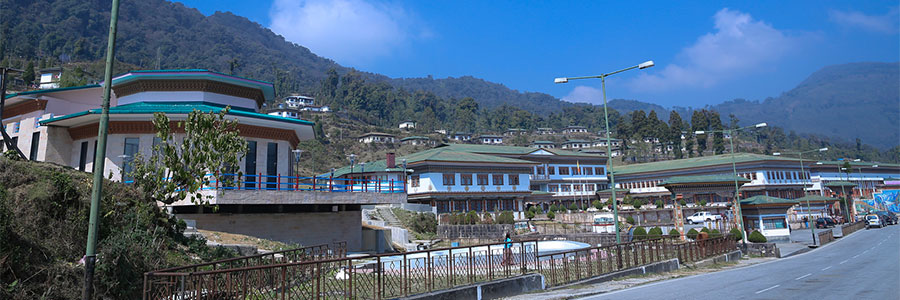
Rich Culture And History Of Bhutan
Bhutan's dedication to upholding a strong cultural identity while welcoming modernization lies at the heart of its fascinating past. The customs and traditions of this small kingdom, which was cut off from the outside world until the middle of the 20th century, have been meticulously preserved. For centuries, Buddhism has been thriving in Bhutan, and it has greatly influenced the nation's identity and way of life.
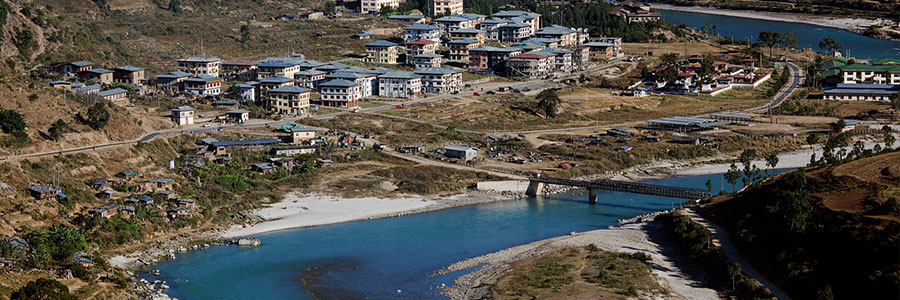
Historical Significance:
The history of Bhutan begins in the 8th century when Buddhism was brought to the nation by Guru Rinpoche (Padmasambhava). Early in the 20th century, Ugyen Wangchuck, the nation's first monarch, united Bhutan, establishing the monarchy that endures to this day. The unique monasteries and Dzongs scattered over the landscape provide insight into Bhutan's medieval past and the significance of religion in Bhutanese culture.
Cultural Significance:
Buddhism has a profound impact on Bhutanese daily life, festivals, art, and architecture. Bhutan's governance is based on the Gross National Happiness (GNH) principle, which prioritizes spiritual and emotional health over financial prosperity. The dedication of the Bhutanese to maintaining their own traditions is evident in their festivals, traditional attire, and everyday routines.
Festivals:
The Paro Tsechu, Thimphu Tsechu, and Punakha Tsechu are important cultural events in Bhutan that honour the country’s Buddhist past via traditional dances, music, and ceremonies. It is recommended that tourists attend these celebrations in order to have an exclusive look at Bhutan's rich cultural heritage.
Essential Travel Tips For Bhutan
Because of its distinct regulations and geography, Bhutan requires some planning before visiting. The following crucial tips will assist you in organizing your trip:
The Best Time to Go to Bhutan:
Spring (March to May) and fall (September to November) are the best seasons to visit Bhutan. Clear skies and moderate temperatures make these seasons ideal for trekking and sightseeing. The summer monsoon season (June to August) experiences greater rainfall, which may impact outdoor activities and the winter months (December to February) are colder, particularly at higher elevations.
Permit and Visa Requirements:
Before visiting Bhutan, all visitors apart from citizens of Bangladesh, India, and the Maldives must get a visa. An authorized Bhutan tour operator , such as AV Holiday World can handle the visa application process. Travel permits, which can be obtained through your travel agency, are also required for destinations such as Taktsang Monastery and Haa Valley.
Payments and Currency
3. Payments and Currency The Ngultrum (BTN), the Bhutanese currency, is based on the Indian Rupee (INR). Although Indian Rupees are commonly accepted, it is advised to bring Bhutanese cash for convenience. Major cities accept credit cards, however, while visiting more offbeat locations, it's advisable to have cash on hand.
Etiquette and Dress Code
Bhutan is a conservative nation and that’s why it is crucial to wear modest clothing, especially when visiting places of worship. Men should refrain from wearing shorts at the temples, while ladies should cover their knees and shoulders. Always take off your shoes when you visit monasteries or Dzongs, and refrain from pointing your foot at sacred figures or statues. Be respectful of local customs since Bhutanese people place a high priority on being courteous.
Health and Safety
Although Bhutan is regarded as a safe place for tourists to visit, it is always a good idea to include emergency medical coverage in your travel insurance policy. Although the nation has a basic healthcare system, visitors may need to be referred to India for more serious diseases. Travellers visiting higher altitudes may experience altitude sickness, so it's critical to acclimate and stay hydrated.
Packing Tips
If you intend to trek or explore the outdoors in Bhutan, it is essential to bring lightweight and comfortable clothing. Because the weather might change suddenly, make sure you pack suitable walking shoes, a rain jacket, sunscreen, a hat, and a thick jacket if you're going in the winter.
Popular Destinations To Explore In Bhutan
Bhutan is renowned for its spiritual significance, tranquil landscapes, and breathtaking natural beauty. The following are a few of the famous locations you shouldn't miss visiting while there:
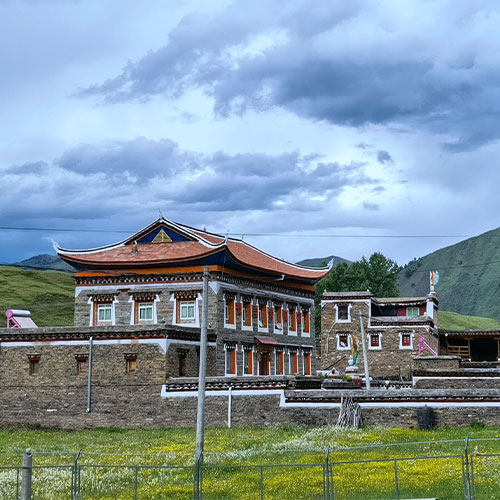
Paro:
Paro is home to several of the nation's most recognizable sites. One of Bhutan's most photographed locations is the Tiger's Nest Monastery (Taktsang Goemba), which is also the cultural icon of the country. The stunning Rinpung Dzong, the National Museum of Bhutan, and the yearly Paro Tsechu festival are other reasons to visit Paro.
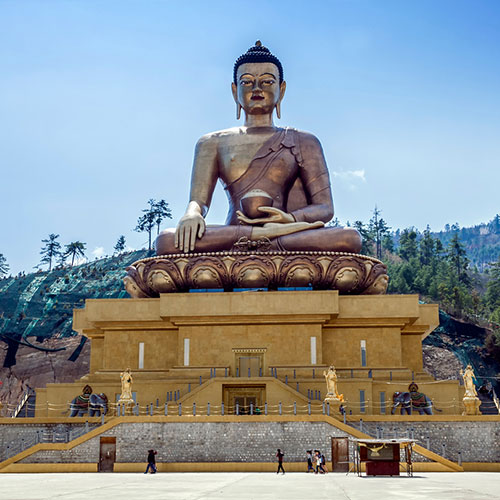
Thimphu:
Bhutan's capital, Thimphu showcases a fascinating blend of modernity and traditional culture. The Tashichho Dzong, the National Memorial Chorten, the Motithang Takin Preserve, and the 169-foot-tall Buddha Dordenma statue are among the main attractions. Additionally, the city has thriving markets where tourists can purchase traditional fabrics and crafts.
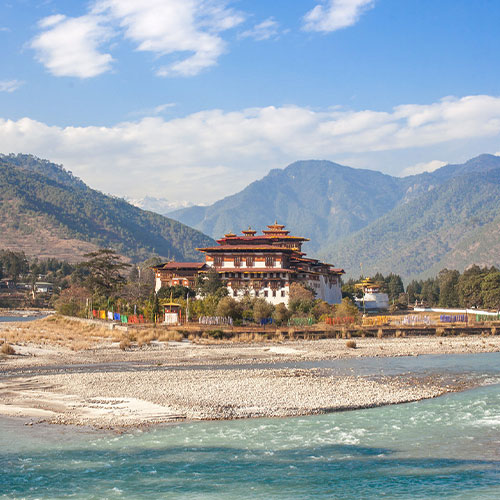
Punakha:
Situated in the Punakha Valley, Punakha is a historic town that is also considered the Winter Capital of Bhutan. One of the most exquisite and historically significant attractions here is the Punakha Dzong, which is situated where the Pho Chhu and Mo Chhu rivers converge. Visit to the Chimi Lhakhang temple and Punakha Suspension Bridge are also highly recommended.
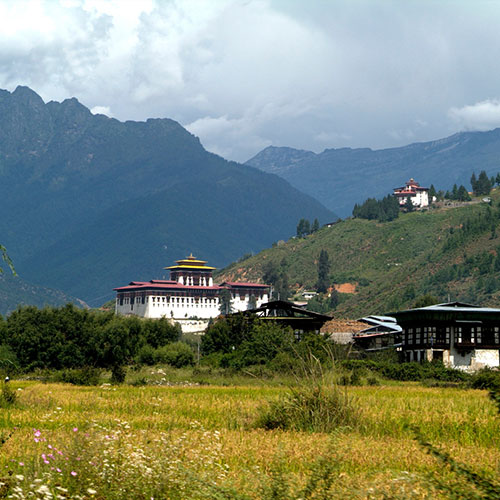
Phobjikha Valley:
This tranquil glacier valley is known for its breathtaking vistas and serves as a migratory ground for the endangered black-necked crane during winters. For people who enjoy the outdoors and want a quiet getaway from the busy cities, this is a great destination. During your trip here, don’t miss to explore the Gangtey Monastery which has some stunning architecture.
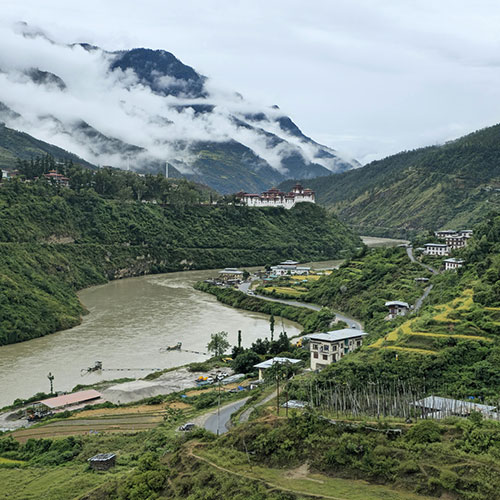
Bumthang:
Known as the spiritual center of Bhutan, Bumthang is home to a number of significant monasteries, such as Kurjey Lhakhang and Jambay Lhakhang. There are also great hiking trails and places to discover the rich history of the region. Contact a tour operator in Bhutan to discover this less-explored destination.
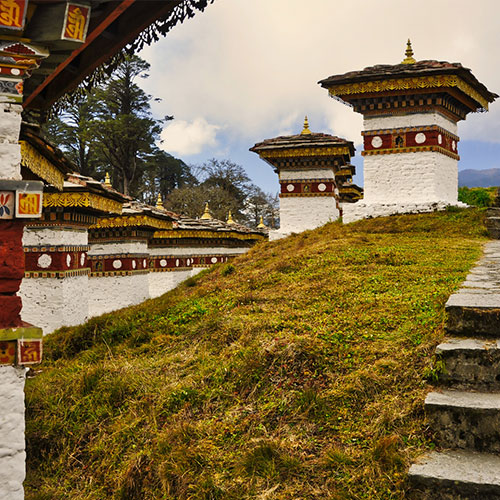
Dochula Pass:
The Dochula Pass is a must-see for expansive views of the Himalayan range. This mountain pass, which lies on the route from Thimphu to Punakha is home to 108 chortens or Buddhist stupas that provide a serene and beautiful environment. If you’re visiting Bhutan during winters then you can also witness traces of snowfall in this scenic mountain pass.
Bhutan offers a combination of natural beauty, rich history, and ancient culture making it a destination unlike any other. Bhutan promises a life-changing experience, whether you're trekking through the Himalayas, exploring the monasteries and Dzongs, or cherishing the vibrant local festivals. Our goal at AV Holiday World is to make sure that your trip to the "Land of Happiness" is one you will never forget. Enjoy the tranquillity of this enchanted realm and have a safe journey with the best travel agency in Jaigaon!

